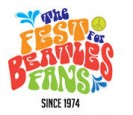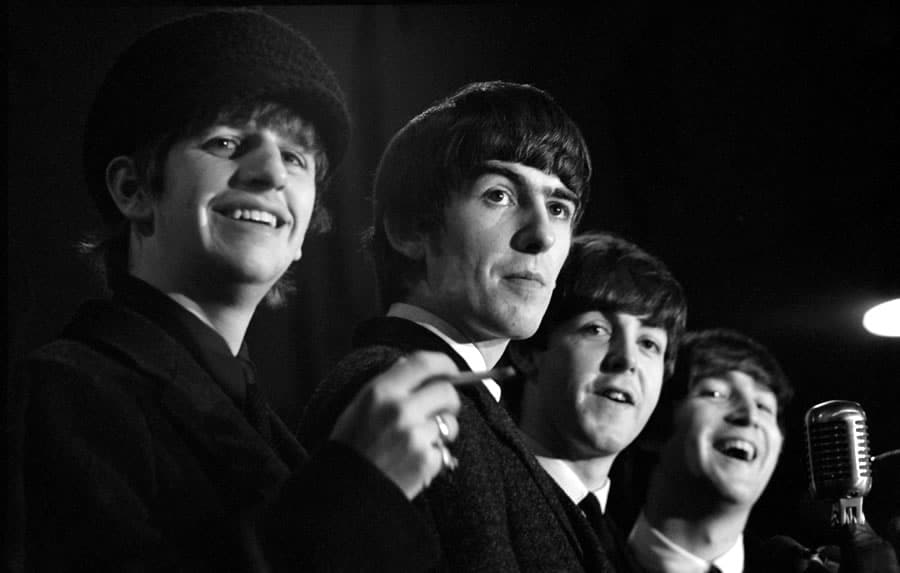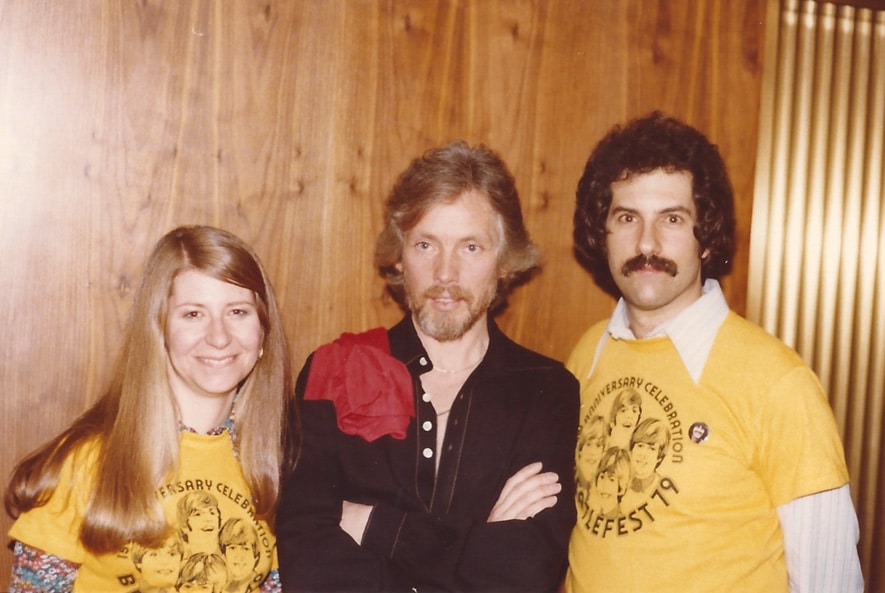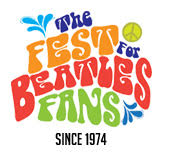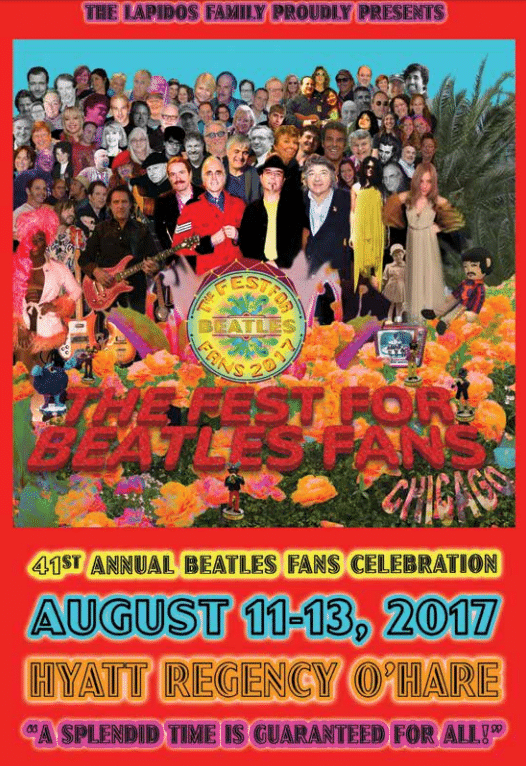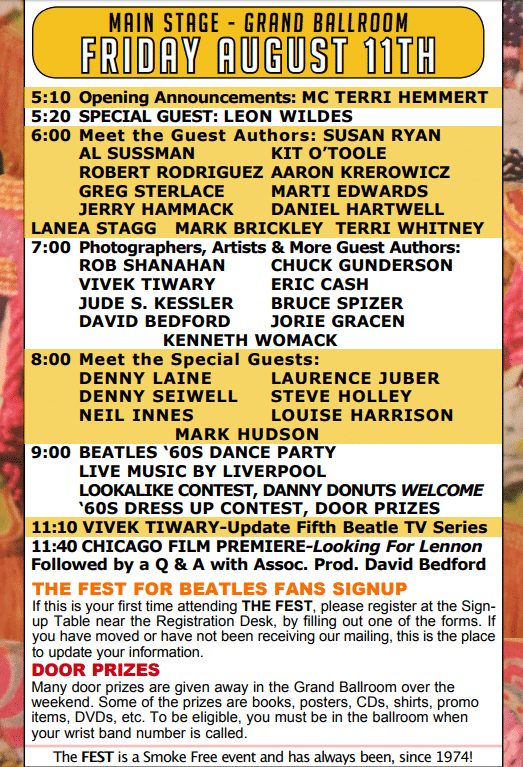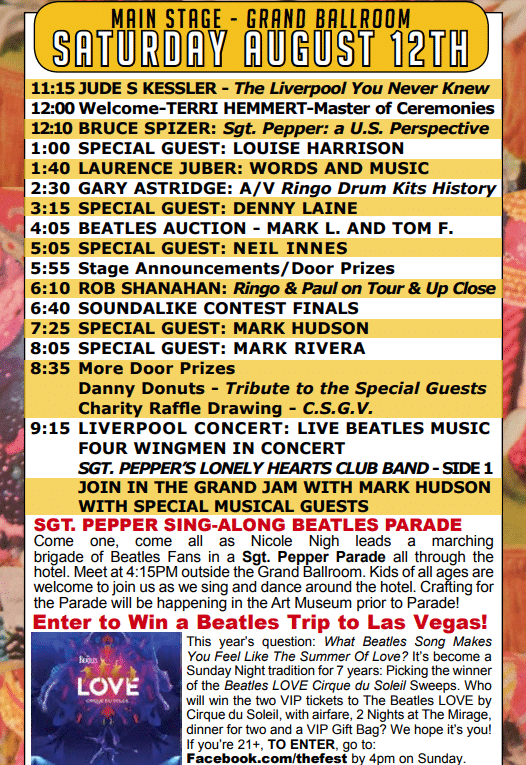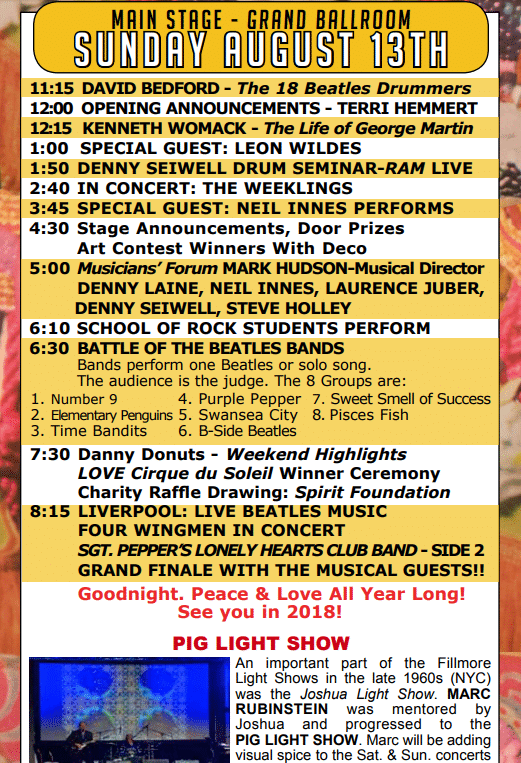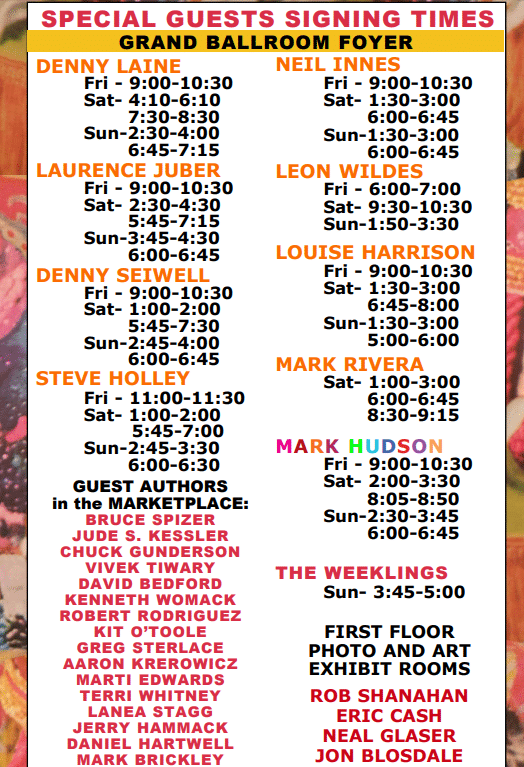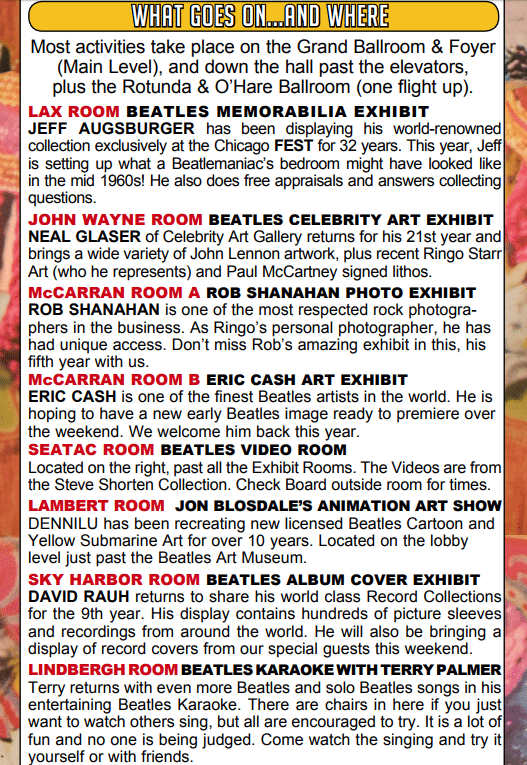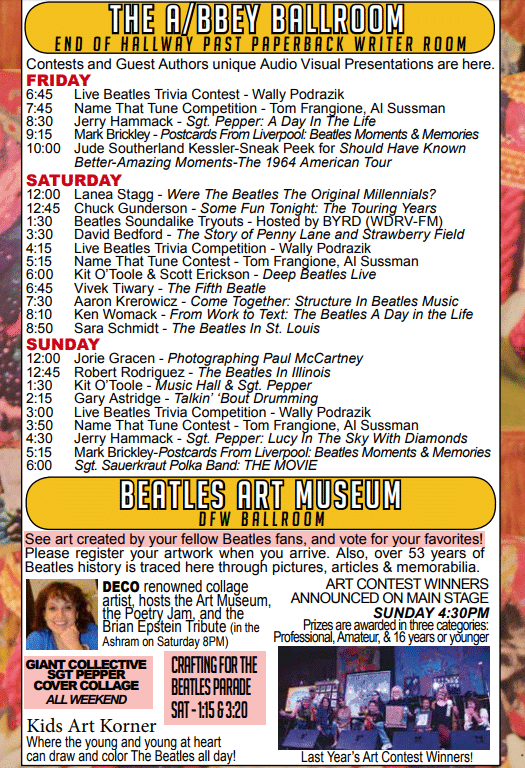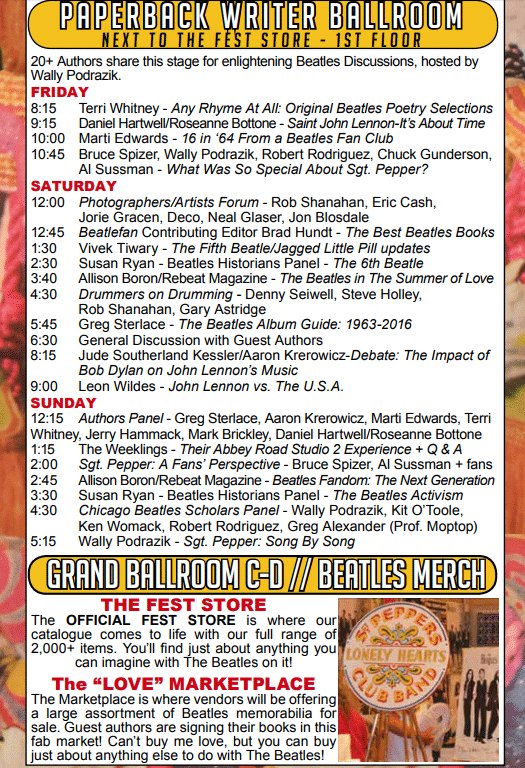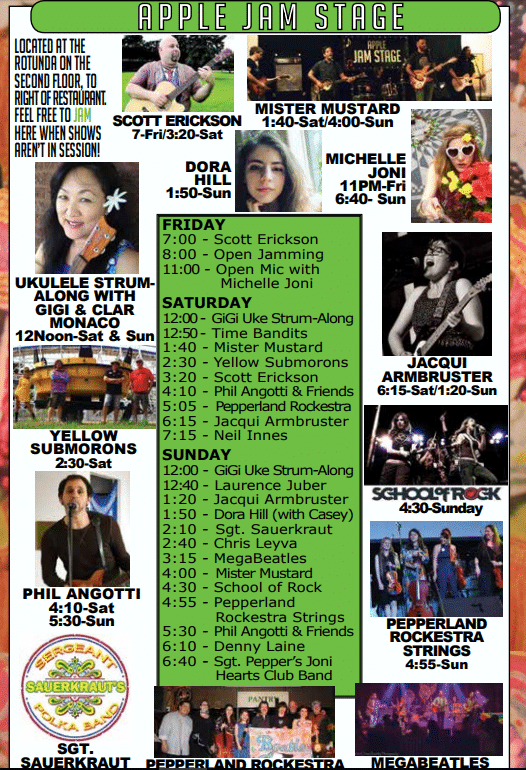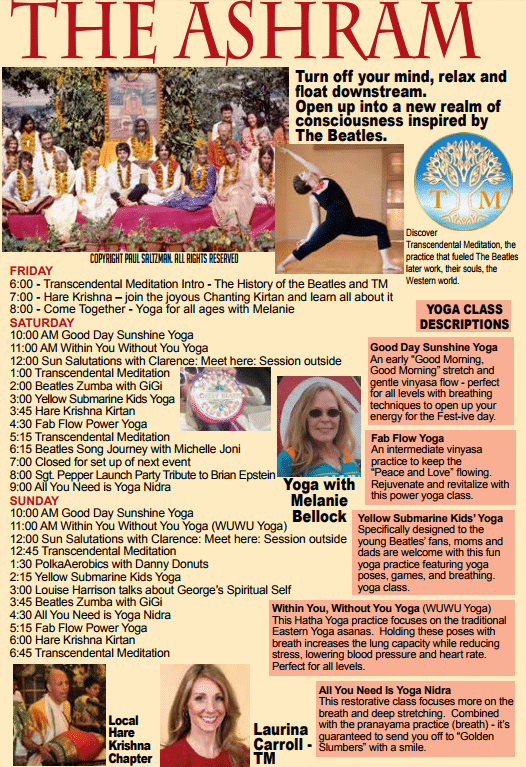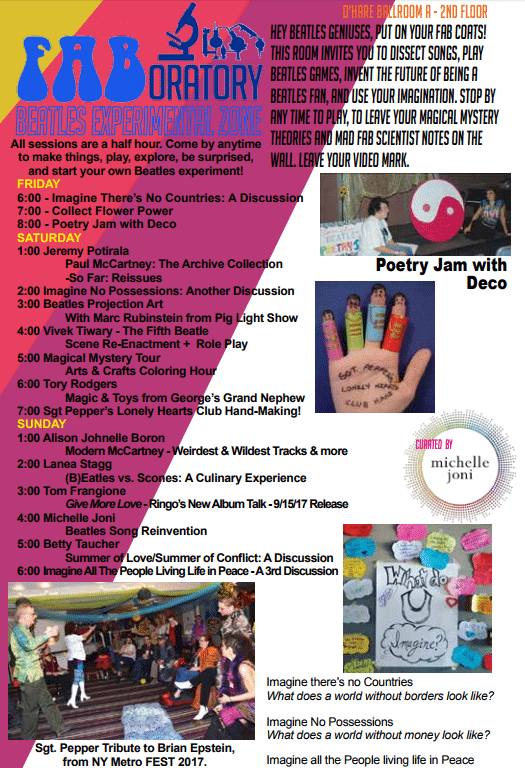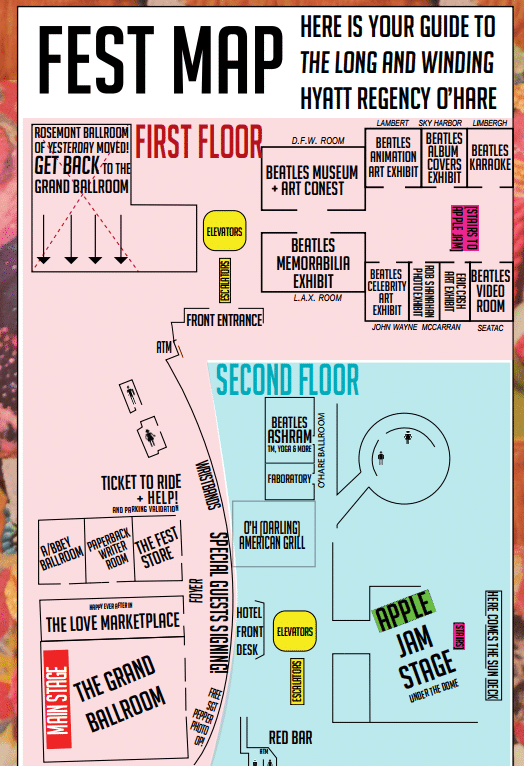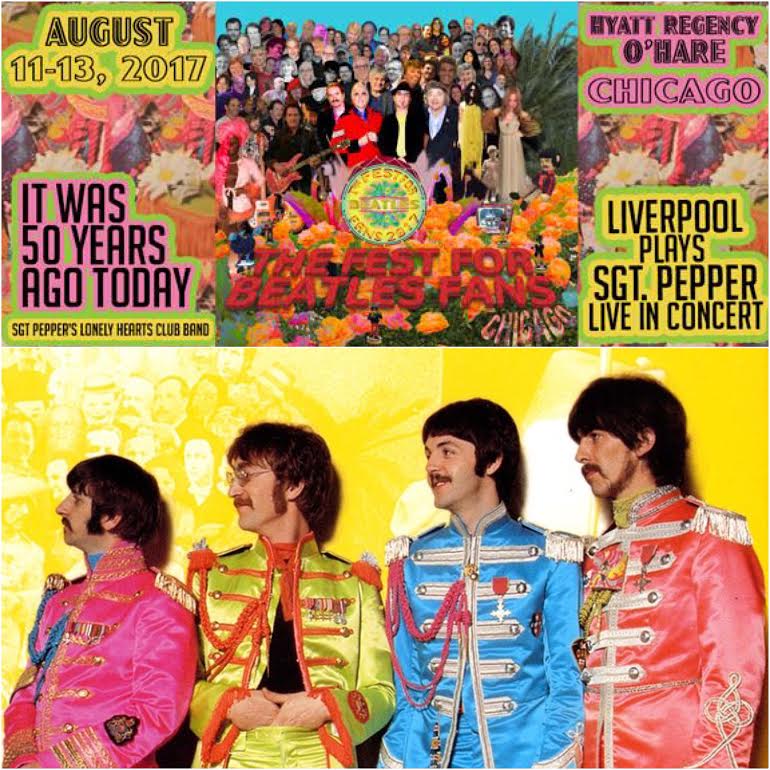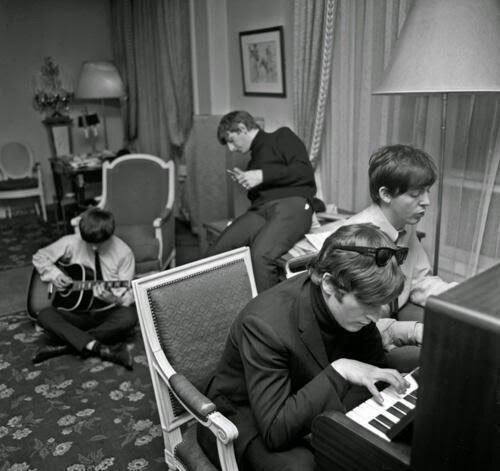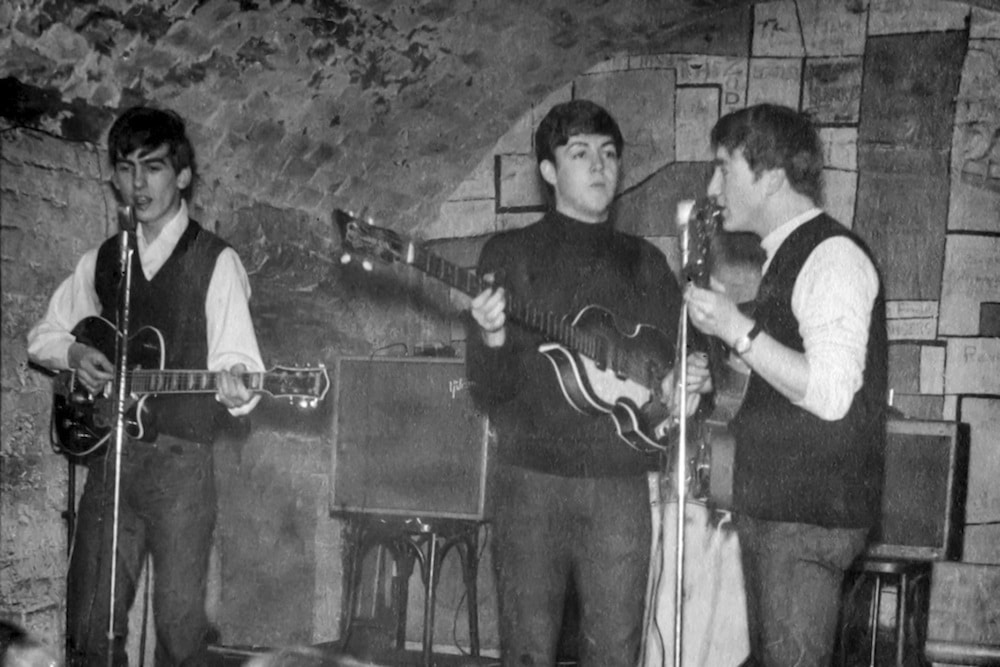Jude talks about her #1 favorite moment in Beatles history…what was yours? Tell us YOUR fav Fab moment! We want to hear from you! We’ll draw a name from all responses to win a Beatles gift package. Read on…
I’ve always longed for a magic time machine. I have no desire at all to whisk away to the future (where I’ll have even more wrinkles than I presently have! Geez!). No, my dream of dreams is to go to the past…to land squarely inside The Cavern Club on Thursday, 5 April 1962 just as the evening set is about to get started:
What a night! Freda’s here. She’s standing in her usual lunchtime spot just under the first arch. It’s rare for her to be here of an evening, but this is a special night. One-of-a-kind.
You see, Brian has – without making a big deal of it – decided to make this night a sort of debutante’s
“coming out” party. With his usual command of the dramatic, he’s planned a never-to-be-forgotten set.
The posters call it “The Beatles: For Their Fans,” and all week long, compère Bob Wooler has proclaimed it as “a singular soiree for the beauteous Beatlettes ’n all ’n sundry Beatles devotees.” The show’s to be one-of-a-kind: during the first set, John, Paul, George, and Pete Best are to bound out from the Green Room in their traditional, tight leathers and to offer up random, uncensored raucous favorites that’ll shake “the Cavern dandruff” from the ceiling and set the room on fire.
Then, after a short break, the lads are to emerge again, this time wearing (for the first time ever in The Cavern) their new, exquisite Beno Dorn suits. This set is to be guided by a strict playlist, good manners, and deep bows from the waist. Brian, you see, is introducing loyal fans to the newly re-engineered Fab Four – the group that will soon leave Liverpool behind and step onto the world stage.
I would give almost anything to experience that night…to feel the passion and energy in the room when the boys opened the first set with “Some Other Guy” and closed with “Twist and Shout.” I’d love to see John snarl at the girls calling Paul’s name and see Paul’s puckered brow when John made the front three rows swoon. I’d love to hear the inside jokes and perspire in the heat (some of it, at least, from the temperature in the underground room). And as an historian, I feel the need to experience the dead hush that raced across the floor when the suited Beatles emerged, full-blown in their finery – and to understand the sobs, when the Liverpool girls who had known the boys all too well realized that they were losing them.
5 April 1962 touched every end of the emotional spectrum. It was the happiest night ever in the Cavern. And it was the most tragic. Of all of the moments in Beatles history that preceded this night or followed after, to me, this was the most important. On that one evening, the wacks from Liverpool (through their own tacit agreement with Brian Epstein) became men of the world. They made the conscious choice to say a fond and loving “good-bye” to their dearest ones Merseyside and then, to walk away.
That’s my “go-to moment.” That’s the Beatles memory I’d most love to relive. What’s yours?
If you could wander back in time and experience one Beatles event, what would it be? Share your story; email us. Tell us where you’d like to go and why. And from the entries we receive, we’ll send one winner (drawn at random) a gift pack including a signed and dated copy of Shoulda Been There (Vol. 1 in The John Lennon Series), a signed and dated “Doors of Liverpool” art poster, and a copy of Recipe Records: A Culinary Tribute to The Beatles.
To add some more fun to this blog, here’s a chapter from my new book, Shivering Inside…
5 April 1962
The Cavern Club
Liverpool
Music drifted in from the vaulted room – Bob Wooler was indeed testing the platters he’d spin: finding the right crescendo of music, the perfect blend of tension and anticipation. Wooler played one hit after another, listening.
For the moment, The Cavern was hollow – echoing sound. It was a cool sepulcher waiting to be filled, a gaping hole in the ground, yawning for bodies to make it viable.
“Evenin’ Beatles.” Neil scuffed in, his arms loaded with four large zip bags, each neatly monogrammed with the Beno Dorn insignia. “Suits here!” he said. He hung the elegant covers on the tiny metal rolling rack they called a “wardrobe.” “Though I must say,” he smirked, “you three look quite smashin’ in that fab gear! I almost recognize you, y’know.”
“’Ullo, everyone.” Pete strolled in, his Bobby Darin coif curled to perfection. “Have y’seen the queue out there? Subzero climes, but the line’s well out into Stanley anyway.”
“And why not?” Neil unzipped the garment bags and fluffed each suit individually. “It’s yer goin’ away bash, yer swan song – the last hurrah before Hamburg, isn’t it?”
George pointed to the large poster Bob had hung on the band room wall. It was a photograph of the four of them staring haughtily, almost disdainfully into the camera. Leather collars upturned, guitars slung across their shoulders or resting on their knees, they looked dark and dangerous. It was the same shot Bill Harry had chosen for the December issue of Mersey Beat. It was The Beatles as they had once been, before Brian Epstein.
“The Beatles for Their Fans,” George read the poster caption aloud, “or An Evening with John, Paul, George (always third) and Pete. Sponsored by The Beatles Fan Club. The Cavern Club, Mathew Street, 5 April 1962, 7:30 p.m. Free photograph to all ticket holders.”
“Oh,” John slipped his boots on. “I was wonderin’ what we were doin’ here.”
“Say…any lookers out there, in the queue?” Paul asked Pete.
“Said the free man,” John intoned. Paul had just broken it off with his long-time ‘gerl’ and Cynthia’s chum, Dot Rhone. Now the game was afoot.
“There’s a coupla o’ not-so-bads,” Pete grinned. “What’re y’after exactly?”
“Dunno,” Paul winked and clicked his cheek twice. “I’m footloose and fancy free. The wind’s at me back, mate!”
“Just where Eppy’d like to be,” John sneered.
“Gerroff, John!” Pete scowled. “Brian’s the perfect gentleman! I mean, all right, yeah, he propositioned me the once, but when I politely declined, he never brought it up, ever again.”
John smirked with delight. “There’s so many innuendos in that statement, I wouldn’t know where to begin!”
“I’m lockin’ ya in, lads!” Bob Wooler popped his head inside the tiny room. “Paddy’s openin’ the doors in five. They’ll be creepin’ and crawlin’ down, all those creatures of the cloister. They’ll be clawin’ at ya, if I don’t bar the way.” He stopped and smiled. “By the by…you look smashin’, one and all! I’d forgotten how workin’ class you four can be, when you really put yer minds to it.”
“Don’t go soft on us, Da,” John spat.
“You know, Johnny boy,” Bob tossed back, “me heart’ll be broken these next seven weeks with you so far away. I don’t know how I’ll manage, actually.”
“Cold winds may blow o’er the icy sea,” Paul crooned, “but we’ll take with we the warmth of thee…”
They laughed, while Wooler grinned and saluted before closing the battered, metal door.
“Seven weeks in Hamburg!” George’s eyes sparkled.
“Yeah, Hamburg…the place for us!” Paul was just as elated. He tossed his hair, then brushed his shoulder with a flannel guitar cloth.
“Astrid ’n Stu’ll be there to meet us…waitin’ for The Beatles in that little, grey Beetle of hers.” John’s tone changed at the very mention of his friends. “I had a post from her today.”
“Right,” George swallowed, sensing bad news. “And uh…how is Stu this week, eh?”
“Not great.” But before John could wander down the path of anxiety, Paul steered the conversation back to anything that could spark pre-show confidence.
“Mersey Beat, y’know, just published this article about the fact that we’ve written ‘at least seventy original tunes’! Seventy!” He rallied them. “Can you believe it?”
“Even George Martin ’n Parlophone should be impressed with information of that ilk!” George agreed.
“Eppy’s already posted him the article,” Paul nodded. “Sent it out first thing this mornin’.”
“Ah, post haste,” John punned weakly, his humour now forced.
“Did y’see in that same issue,” Pete interjected, “Virginia’s story that Ringo’s turned ’round and is leavin’ The Hurricanes…after all these years?”
“Really?” Paul and George snapped their heads around.
“Right,” Pete shrugged, “accordin’ to her, Ring’s defectin’ to Derry and the Seniors.”
“Thasso?” George’s eyes were bright.
Suddenly, from the other side of the door the sound of feet pounding down stairs, voices chatting and laughing, and wooden chairs grating across concrete inundated them. Yells, coughs, whoops, insults – the sound of people being people grew and increased and swelled to noise. Just on the other side of the thin metal barrier that divided the boys from The Cavern were the punters – the fans, the Beatlettes, the believers, the horde of young men and women who had over and over again traipsed down thirteen potholed stairs to the murky, underground club.
Tonight they had gathered to say goodbye. They’d come to wish The Beatles well and to send them off reluctantly to Hamburg’s Star- Club. They’d come to celebrate their lads’ success and to mourn over the forty-nine barren days to come.
The door opened a tad, and Brian inched in. “Showtime, boys,” he said quietly. “And it’s a packed house, mind you. Not an inch to spare. In fact, I’m not sure how you’ll navigate to the stage! Your fans, every one of them, have come out for you, as it were – sending back messages of good luck, Godspeed, ‘good on yer lads,’ or ‘play one for Vi’…that sort of thing.” He was talking in circles; John suspected pep pills. It had been Brian’s trend of late. “One girl in particular – Bernadette Farrell, I believe – said her brother has a camera, and he’ll be in the second row. She said to smile at him, if you don’t mind.”
“Well, I do mind,” John sniffed. “I make it a rule never to smile towards the second row.” Then he jammed his tongue behind his lower lip and crossed his eyes. “How’s that fer a second row grin, Eppy?” he employed his old man’s voice.
But the William Tell Overture drowned out any response, and the boys stood up to stretch.
“Welcome to The Cavern! The Best of Cellars!” Bob Wooler’s melodic tones filled the low-slung room and bounced off the rough stone walls. “And what an evenin’ you have in store for you, Cavern Dwellers! What a night to remember!” The crowd rumbled and moved. “Right on the brink of another conquerin’ tour of Hamburg…” There were boos from the girls who would miss them most. “On the eve of their departure for seven long weeks…” More boos and derogatory whistles. “I give you the latest and greatest recordin’ stars in all of Mother England! The stars of radio as well! Your hometown lads!” He paused and let the music play. “The Beeeeeeatles!”
When the band room door smashed open and crashed into the wall behind it, the screams began. And when the Liverpool boys – decked from head to toe in skintight leathers – forced their way into the jampacked room, the swell shook the street above. Reverberating screams rent the Liverpool night. The North shuddered, goose-fleshed.
Brian Farrell raised his new Kodak above his head, above the arms reaching and clawing for the boys, and he snapped the first frame. Seventeen shots left…all he had. But Farrell was determined to capture this night forever.
When the bulb didn’t flash, he lowered the camera and removed the fat, squatty bulb. Farrell licked the metal connector and then jammed the bulb back into its socket again. With a second try, he attempted to capture the lads taking their places on the stage, hoisting their famous guitars and waving to the crowd. He tried to save the smiles and the shine in their eyes as The Beatles laughed and danced about…but the flash still failed.
“Good evenin’, everyone!” Paul shouted into the primitive microphone. A screech of feedback answered him.
“’Ullo, boys ’n girls!” John rasped, geriatrically.
Pete took his seat on the rostrum and picked up his drum sticks. George gave a rippled finger wave and shy grin. More screams.
And without further ado, The Fabulous Beatles ripped into “Some Other Guy.” They tore through the song like the Liverpool gales that kept alleyways pristine but nooks and crannies packed with leaves and debris.
From the corner of the room, Epstein watched and nodded. Even he could see a difference tonight – could see that the boys before him had reclaimed the magic of their early years. In the transformation to sedate, refined performers, The Beatles had supplanted professionalism for primal appeal, and something exciting had been relinquished.
But Brian stood firm. He felt the trade, a necessary barter.
“Next up,” Paul almost kissed the microphone, “is a little number…”
“Nah, I left her at home,” John deadpanned. The girls bit their fingers and squealed madly.
“Next up,” Paul tried again, “is a little number by Carl Perkins. It’s called ‘Sure to Fall.’ This one’s a favourite of ours, and it goes somethin’ like this…”
The affectionate, folk-songy, bit of close harmony was a crowd pleaser. The Cavern Dwellers sang along – holding hands, swaying to the music – some closing their eyes and drinking in the moment.
Brian Farrell leaned over and shouted to his sister, Bernadette. He pointed to his camera face, miming that he needed a new flashbulb. But when she finally got the message, Bernadette scowled and mouthed, “Wait, yew!” – forcing Brian to grab his sister’s purse and go fishing for himself.
“So hold me tight, let tonight be the night,” Paul crooned. “Darlin’, don’t ever let me go.”
John winked at long-time fan, Val Davies, and she winked right back, her hands clasped under her chin in singular adoration. John pulled a face, and Val giggled. “Lovin’ you is the natural thing to do,” John harmonized with Paul.
And Val sang with them from her chair, “I want you for the rest of my life!”
On it went. George delivered “Do You Want to Know a Secret?” from the back of his throat, his tongue thick with Scouse. John gave them “Bad Boy,” “Youngblood,” and the edgy, “Baby, It’s You.” But when Pete did “Matchbox,” the punters began to dance. There were arms and legs everywhere. The room gyrated and wiggled. It was a room kinetic.
Plops of moisture began dripping from the ceiling. Brian Farrell covered his camera with a cupped hand and cradled the Kodak close to his chest. The room was raining perspiration.
“Exactly why we’re headed for the better clubs!” Brian Epstein puckered his brow and shouted to Alistair Taylor beside him. Alistair nodded agreement, shielding himself with the latest copy of Mersey Beat. But as Taylor watched George Harrison do his little “three-steps-up, three-steps-back dance-walk boogie,” Alistair wondered if Brian’s grand plan for the group would succeed in the long run.
The Beatles were clearly Liverpudlian. They were rowdy, unruly, “mickey-talkin’ miscreants,” as Bob Wooler always referred to them. Moreover, they were umbilically joined to the Scousers surrounding them tonight. Would Germany embrace them as warmly? Would the far-away-and-someday America love the lads as fervently as this lot clearly did?
“Play ‘Soldier of Love,’ pleeeeeese, Johnny!” a girl whined, seductively.
“Play, ‘Searchin’,’ Paul!” called another.
These fans knew The Beatles as well as the boys knew themselves. They had grown together, rooted in one close vessel.
“Next set…all right, luv?” Paul took a seat on one corner of the stage. He was flexing Brian’s rules tonight, and he knew it. They all were.
But it was only the once. A night that would never come again.
Brian Farrell snapped the shot, and this time the flash worked. It pop-sizzled, catching Paul in the moment. A mad scramble with slippery hands to switch bulbs, and Farrell caught John in a soft-shoe, his arms wind-milling everywhere.
Success! Farrell cheered. Fourteen shots to go.
When the last of the set concluded and the boys tumbled to the band room under a barrage of cheers, Bernadette plowed through her purse for her brother’s other bulbs. “Here! Keep ’em yer bleedin’self!” she shoved them in his direction. “I’m not yer nursie, am I?”
“Aw, c’mon!” the boy tried to protest. But Bernadette held up a hand and prissed away to the unforgivably gritty ladies’ loo.
“Hmmpf! She’s gorra a cob on!” Brian grumbled. But as brothers will, he shrugged it off.
*********
Break time at The Cavern was almost unbearable. Without the lads to distract them, the punters noticedthe body odor a la antiseptic. They noticed the suffocating heat, weeping walls, and low ceilings. The claustrophobic ones fought their way upstairs, only to subject their sodden shirts to Mathew’s biting chill. But most – afraid to lose their vantage points, stayed below – their lips sucking in putrid air.
Backstage, John ripped off the sweat-soaked polo and tossed it to the floor. His leather jacket was already crumpled at his feet.
“It felt fuggin’ great to be us for a change, didn’t it?” he crowed, his funk over Stu forgotten momentarily.
“Yeah, it wasn’t half bad, y’know,” George said euphorically. “It almost made me forget how tired and rundown I’ve been lately.”
Both John and Paul snapped their heads around in the boy’s direction.
“We’ve a trip in one week, son!” John threatened. “One week!”
“Right,” Paul mandated, wiping his arms before slipping into his new dress shirt and suit. “No comin’ down with anythin’ this late in the game!”
“Yeah, yeah, I’m fine, I’m fine,” George reassured them. “I’m fine!” he shouted.
“Make it so,” John commanded, and the leather kecks were torn away, discarded.
Paul took his new, thin-lapelled jacket from the hanger and wriggled into it while John held his arms out like a scarecrow, struggling to line-dry in the watered air.
“Ready, then?” Brian’s head popped in at the door. But he could see they weren’t. Only Paul was partially dressed.
“In three…or four,” George wrangled with the inner button on the mohair slacks. “They’re awfully itchy – these kecks.” He made a face.
“They’re excellent quality,” Brian insisted.
“And itchy,” George said again.
“I’m ready.” Pete buttoned his suit coat and took a deep breath.
“Hey Pete, remember the tempo on ‘’Til There was You,’ right?” Paul slipped into his dress boots. “It’s not just the ticky, ticky, ticky, yeah?”
“Y’hearin’ a fluctuation that’s not there, McCartney.” Pete handed John his shirt. “Y’er over- meticulous, aren’t you?”
“Just keep in mind how I showed you to do it, all right?” Paul ignored the rebuttal.
“Get knotted.” Pete looked away.
“Let’s go, boys!” Brian tapped the doorframe twice. “It’s been remarkable thus far! Keep it up.” He vanished, and the theme music began again.
*********
“Single entrance,” John reminded them, his trousers unbuttoned, his tie untied.
Paul gave him “thumbs up” while George scurried over to knot a traditional Small Knot for him.
“Yeah, we remember,” George said, concentrating on the tie. “One of us at a time…’n we’re supposed to wait for our intro. It’s all drama – that.”
“Cavern Dwellers, one and all!” Bob Wooler’s joyous voice boomed as John slipped into his jacket, “Please welcome back on bass guitar, the talented and terrific…Mr. Paul McCartney!” Screams poured into the band room. Paul squeezed through the door and bounded to the stage.
“And next,” Wooler oozed while John located his boots, “that adorable and amazin’ lad on his American Gretsch lead guitar…Mr. George Harrison!” George waved briefly, saying “hello” to this one and that as he edged through myriad bodies to the platform.
“Now…chanka-chankin’ his way into yer hearts, your favourite Ric-thm guitarist, Mr. JohnLennon!” Bob, like almost everyone Merseyside, said John’s name as one word, and John hailed the audience as one – his leer on them all, his spell cast with one, sweeping glance.
“And finally, on drums,” Bob paused eloquently, “our very own Jeff Chandler – mean…moody…and magnificent…Mr. Pete Best!”
The swell of screams almost knocked them over. Pete, watching his footing carefully and looking up only now and again, reached the boards and took the microphone that Paul handed him. Standing centre stage, he cleared his throat and waited to sing his Second Set solo number.
“Ladies and gentlemen,” Wooler concluded his spiel, “here they are…the stuff that screams are made ofvi…The Beeeeeatles!”
While the punters went mad, Paul scrambled to the rostrum and hoisted the drumsticks. George turned up his new Gibson amp, and John strummed his refitted Rickenbacker. After a dramatic moment or two, John gave the sign, and the four handsomely suited lads opened the second set of the night with an American club tune, Chubby Checker’s “Peppermint Twist.”
“Now, that’s more like it!” Brian mouthed to Alistair, above the din.
Alistair nodded obsequiously, but he was, nevertheless, unconvinced. The suits, he thought, were well and good, but the group on stage now was far more restrained than the rockers that had been standing there ten minutes ago. For Alistair, the metamorphosis had more cons than pros.
It was hard to shush the fans after Pete’s song. Shouts! Squeals! Screams went on forever. Paul chuckled a little and held up his hand.
“Now…” he began. Screams.
“Now…” Cheers and applause.
Paul looked to Epstein, who motioned for him to go on with the programme, regardless.
“Now here’s a little ditty,” Paul tried, futilely. “Here’s a little ditty,” he repeated. Scattered shouts. “Here’s a little ditty that was a big hit for the late, great Buddy Holly,” he finally eked out, “and it’s called…well, you tell us!”
As the Cavern Dwellers shouted, “Cryin’, Waitin’, Hopin’!” with all their might, George leaned over to John. “See that kid Eppy was talkin’ about earlier?” George nodded in Brian Farrell’s direction. “The one in the second row that Eppy said was snappin’ our photos?”
“Yeah,” John smacked his gum, “so what?”
“Well,” George smiled wryly, “he looks a bit like Alfred E. Newman, doesn’t he?”
John cut his eyes at the kid and burst into cackles. He was still laughing, when Paul and Pete slipped into song – and when George managed to catch up after the second eight. Finally, John lifted his guitar as well, high on his chest; he loosened his tie a little more and then joined them in the bridge.
At that moment, Brian Farrell took the photo. He snapped it just as John looked straight at him, grinning widely for his camera alone.
“Ah, great shot!” the boy whispered. “Priceless one!”
And rather pleased with himself, Farrell folded his arms and leaned back to watch his sister, the other Beatlettes, and all the Cavern Dwellers offer up a teary farewell to their lads:
“Cryin’…waitin’…hopin’… someday soon you’ll come back to me…I think about you all the time.”
Sources:
Lewisohn, The Complete Beatles Chronicle, 69.
Harry, The Ultimate Beatles Encyclopedia, 552.
Best and Doncaster, 134, 149.
Pawlowski, How They Became The Beatles, 64.
Norman, Shout, 148.
Miles, The Beatles’ Diary, Vol. 1, 61.
Spitz, 299.
Leigh, Drummed Out: The Sacking of Pete Best, 23, 26.
Salewicz, McCartney, 130.
Lennon, Cynthia, John, 81-82.
All details in this chapter, including the story of Brian and Bernadette Farrell and Val Davies, are factual. If you are fortunate enough to acquire a copy of Bill Harry’s MerseyBeat: The Beginnings of The Beatles, you can read the story about Ringo planning to leave Rory Storm and the Hurricanes on p. 30, in Virginia Harry’s column “Mersey Roundabout.” The actual poster mentioned in this chapter is found on page 31. The information about Paul’s drumming requirements of Pete Best come from Spencer Leigh’s book, Drummed Out: The Sacking of Pete Best (p. 56-57).
If you’d like to see a photograph of Bernadette Farrell, taken by Brian Farrell, see p. 81 of Pawlowski’s How They Became The Beatles.
Jude Southerland Kessler is the author of the John Lennon Series: www.johnlennonseries.com
Jude is represented by 910 Public Relations — @910PubRel on Twitter and 910 Public Relations on Facebook.




